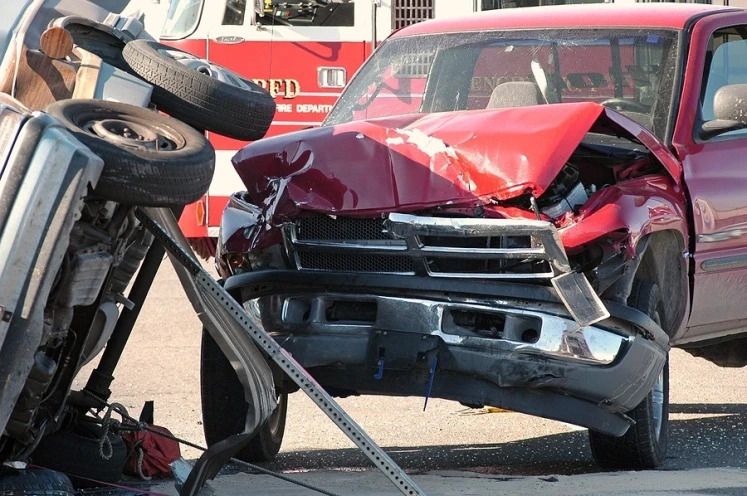Car accidents can be disorienting and stressful, especially when injuries occur or significant property damage is involved. Beyond seeking medical attention and notifying law enforcement, preserving evidence after a crash is a critical step. Evidence plays a central role in personal injury claims, helping to establish fault, prove damages, and protect your legal rights. Understanding how to secure and document evidence after an accident in Jackson, Mississippi, can make a significant difference in the outcome of your case.
Why Preserving Evidence Matters
Evidence is the foundation of any personal injury claim. Without clear documentation of the accident, it becomes more difficult to demonstrate liability or the extent of damages. Preserving evidence serves several purposes:
-
Proving Fault: Photographs, witness statements, and police reports help show how the accident occurred and who was responsible.
-
Documenting Injuries: Medical records, photographs of injuries, and treatment receipts establish the severity and impact of harm.
-
Supporting Insurance Claims: Insurance companies often require detailed documentation before approving claims.
-
Strengthening Legal Cases: Courts rely on evidence to make fair decisions. Well-preserved evidence increases the likelihood of a favorable outcome.
Failing to preserve evidence can weaken a case and make it harder to recover compensation for medical bills, lost wages, and pain and suffering.
Immediate Actions at the Scene
The first moments after an accident are crucial. Taking specific steps can help protect evidence:
-
Ensure Safety and Seek Medical Attention: Move to a safe location if possible, but do not leave the scene unless medically necessary. Prioritize your health and the safety of others involved.
-
Contact Law Enforcement: In Mississippi, it is generally required to report accidents involving injury, death, or significant property damage. Police reports create an official record that can serve as evidence.
-
Document the Scene: Use your phone or camera to photograph or video the accident scene, including vehicle positions, damage, skid marks, traffic signals, road conditions, and surrounding areas. Take wide-angle shots and close-ups to capture details accurately.
-
Exchange Information: Collect the names, addresses, phone numbers, and insurance details of all drivers involved. This information is critical for claims and legal proceedings.
Gathering Witness Information
Eyewitnesses can provide independent accounts of the accident, which often strengthens a claim. Whenever possible:
-
Approach witnesses politely and ask for their contact information.
-
Take notes on what they observed, including the direction of vehicles, behaviors, or actions leading to the crash.
-
If witnesses are willing, ask them to provide a written statement or agree to speak with your attorney.
Witness testimony can corroborate your version of events and provide additional perspectives that support your case.
Preserving Physical Evidence
Physical evidence related to the accident should be protected and documented carefully. Important steps include:
-
Preserve Vehicle Damage: Avoid repairing your vehicle until photographs are taken. Insurance adjusters and attorneys often need to examine the damage to assess liability and repair costs.
-
Save Personal Items: If any belongings were damaged in the accident, keep them as evidence. This may include clothing, electronics, or other items involved.
-
Retain Medical Documentation: Keep copies of all medical reports, bills, prescriptions, and diagnostic tests. Early documentation of injuries is crucial for establishing the link between the accident and your harm.
Handling evidence properly helps ensure it remains admissible in court and maintains its value in settlement negotiations.
Collecting Digital Evidence
In today’s world, digital evidence can be just as important as physical evidence. Consider the following:
-
Dashcam Footage: If your vehicle or another involved party had a dashcam, save the recording immediately. Footage can provide a clear account of the accident.
-
Surveillance Cameras: Nearby businesses, traffic cameras, or private residences may have captured the incident. Identifying and preserving this footage quickly is essential, as recordings are often overwritten after a short period.
-
Text Messages and Emails: Preserve any communications related to the accident, such as messages with the other driver or insurance representatives.
Digital evidence can offer objective proof of events, helping to confirm details and support your claims.
Avoiding Common Mistakes
Some actions after an accident can unintentionally compromise evidence. To protect your case:
-
Do Not Admit Fault: Avoid statements that could be interpreted as accepting blame. Liability should be determined through investigation and evidence.
-
Do Not Delete Evidence: Preserve photographs, messages, and digital recordings. Deleting or altering evidence can undermine your case.
-
Do Not Rush Repairs: While repairs are sometimes necessary for safety, delaying non-essential work allows adjusters and attorneys to inspect the damage.
Being cautious and deliberate helps maintain the integrity of the evidence.
Working With Legal Professionals
An experienced personal injury attorney in Jackson, Mississippi, can guide you through the evidence preservation process. Attorneys can:
-
Advise on what evidence is most critical to collect.
-
Help obtain official records and surveillance footage.
-
Interview witnesses and gather supporting statements.
-
Communicate with insurance companies to protect your rights.
-
Ensure evidence is properly documented for use in settlement negotiations or court.
Legal guidance ensures that all relevant evidence is preserved and strengthens the foundation of your case.
Time-Sensitive Nature of Evidence
Evidence preservation is time-sensitive. Vehicle positions may change, damage may be repaired, and digital recordings may be overwritten. Witness memories can fade quickly. Acting promptly to document the accident, gather information, and secure evidence is crucial. Immediate action often makes the difference between a strong case and one that faces unnecessary challenges.
Conclusion
Preserving evidence after a car accident in Jackson, Mississippi, is a vital step for protecting your rights and ensuring fair compensation. From photographing the scene and collecting witness information to saving medical records and digital evidence, each action strengthens your personal injury claim.
Careful documentation helps prove fault, quantify damages, and support interactions with insurance companies and courts. Working with a skilled personal injury attorney can provide guidance on evidence preservation and ensure that all necessary steps are taken to protect your case.
By acting quickly and thoughtfully, crash victims can safeguard the evidence needed to pursue compensation, recover medical costs, and hold negligent parties accountable. Preserving evidence is not just a procedural step—it is an essential part of protecting your legal rights and moving toward recovery after a serious accident.

